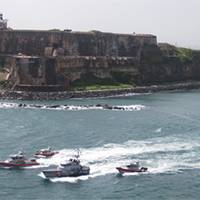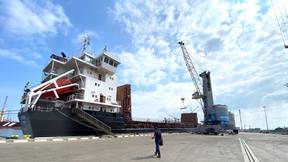Report: FBI Falls Short On Port Threat Assessment

The Federal Bureau of Investigation is not taking appropriate steps to review and assess potential maritime terrorism risks facing U.S. sea ports, the Justice Department's internal watchdog has found.The audit, released on Thursday by Inspector General Michael Horowitz, found that while top FBI officials believe the country faces a low maritime terrorism threat, that view is actually based on "incomplete and potentially inaccurate information."Moreover, the audit found that the FBI had not conducted its own formal assessment of the matter.In a letter to Horowitz dated Aug.
Maritime Security in Focus in the Caribbean

Puerto Rico, centrally located at the crossroads of the Caribbean, is the location of Maritime Security 2015 Caribbean currently underway in the busy port city of San Juan. The keynote addresses were delivered by Ingrid Colberg-Rodriguez, executive director of the Puerto Rico Ports Authority, and Capt. Michael Zamperini, deputy commander of Coast Guard Sector San Juan. Attendees included representatives from federal agencies, including Coast Guard, Customs and Border Protection, Transportation Security Agency, FBI, FEMA, Drug Enforcement Agency, and the National Joint Terrorism Task Force.
Merchant Mariner Sentenced
Joseph A. Boevink (51) of Panama City, Fla., was sentenced by United States District Judge Thomas S. Zilly in Seattle to two months in custody, followed by up to 60 days in a halfway house, and two years of supervised release, for falsely claiming that he had never been convicted of a criminal offense on an application for Merchant Mariner license submitted to the U.S. Coast Guard in Seattle in January 2001. The U.S. Coast Guard is required under federal law to issue such licenses, called Merchant Mariner Documents, to individuals employed on large merchant vessels. One of the purposes of the license is to ensure that the U.S. Coast Guard knows who has access to, and is traveling on, merchant vessels that operate within United States waters.







